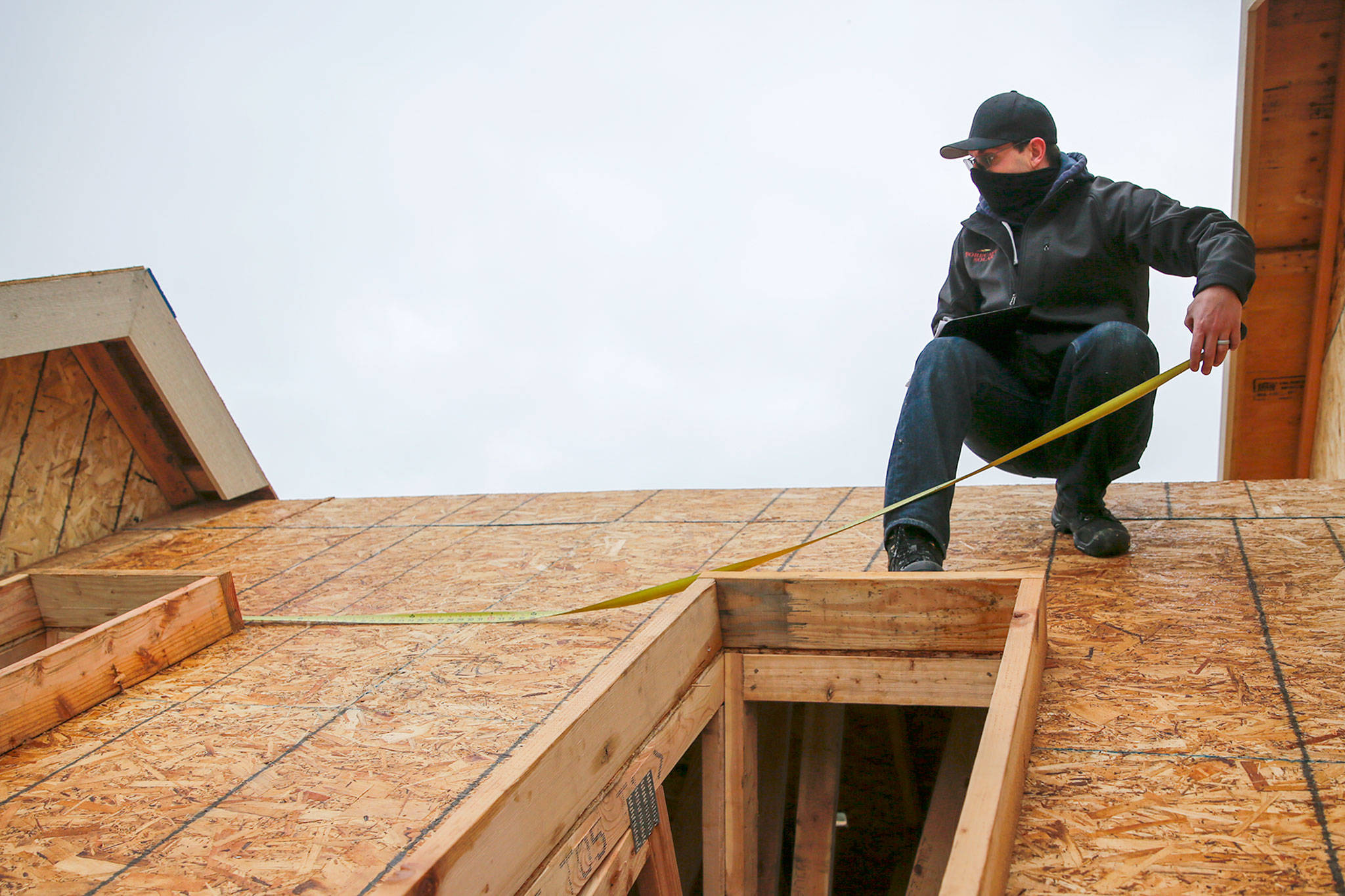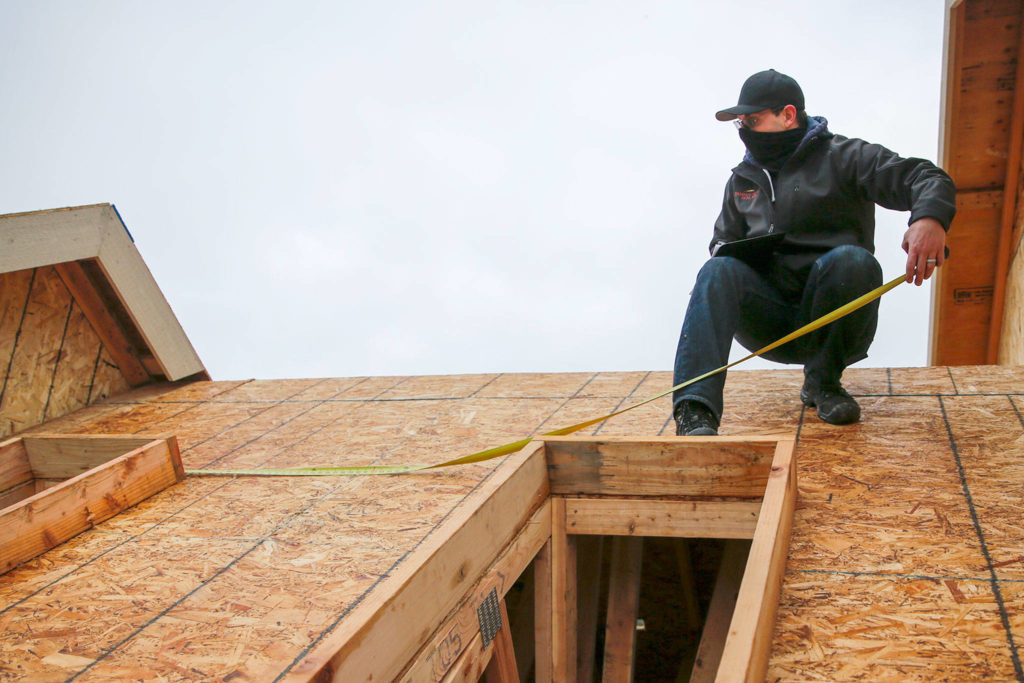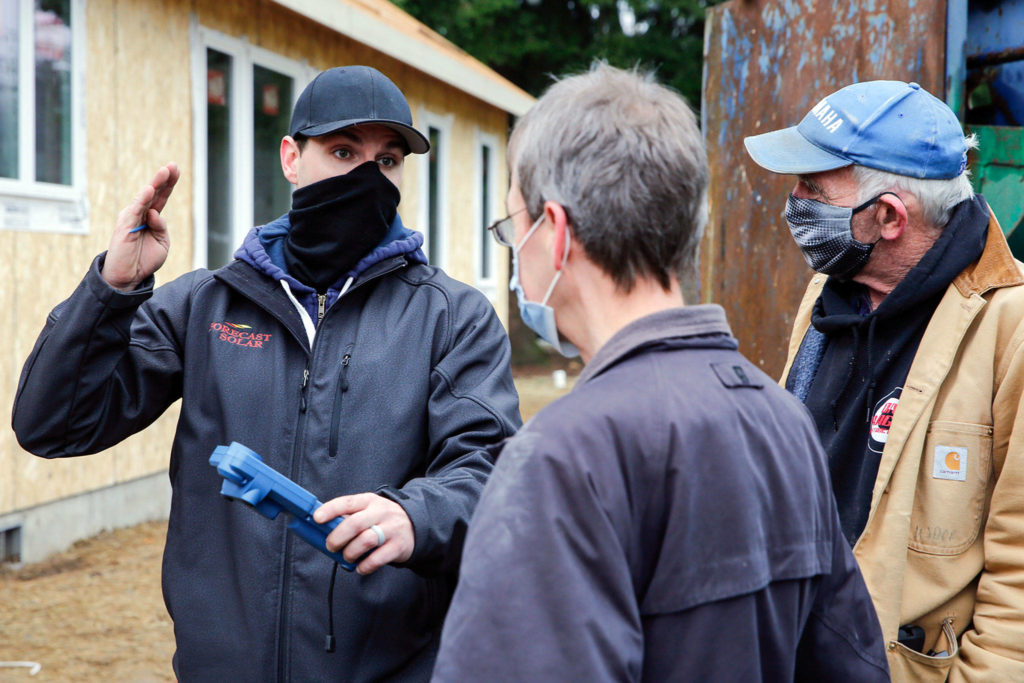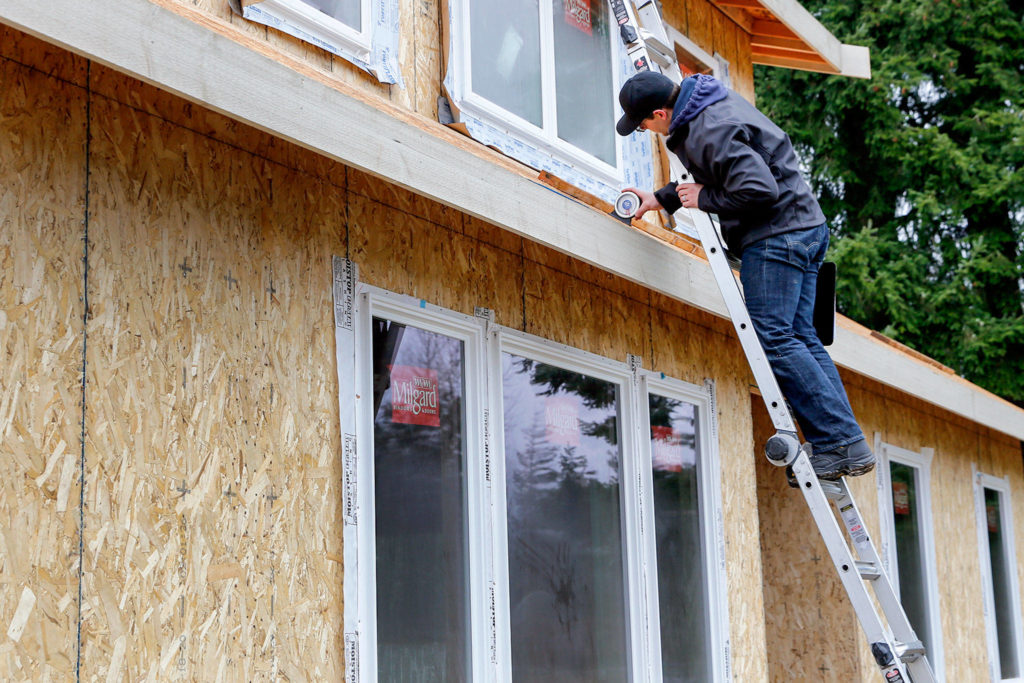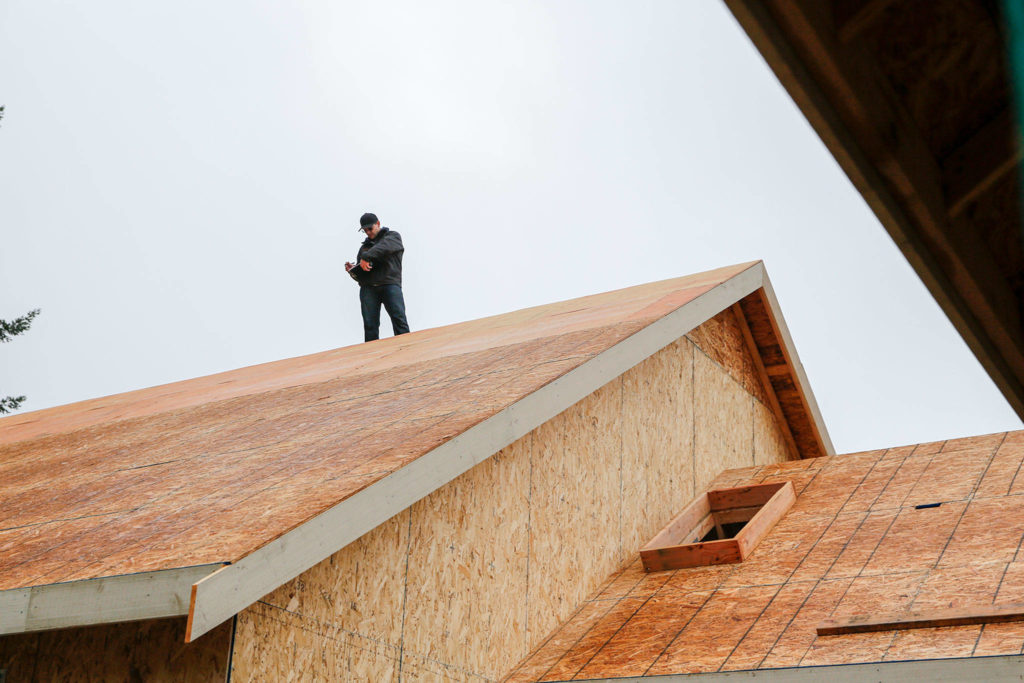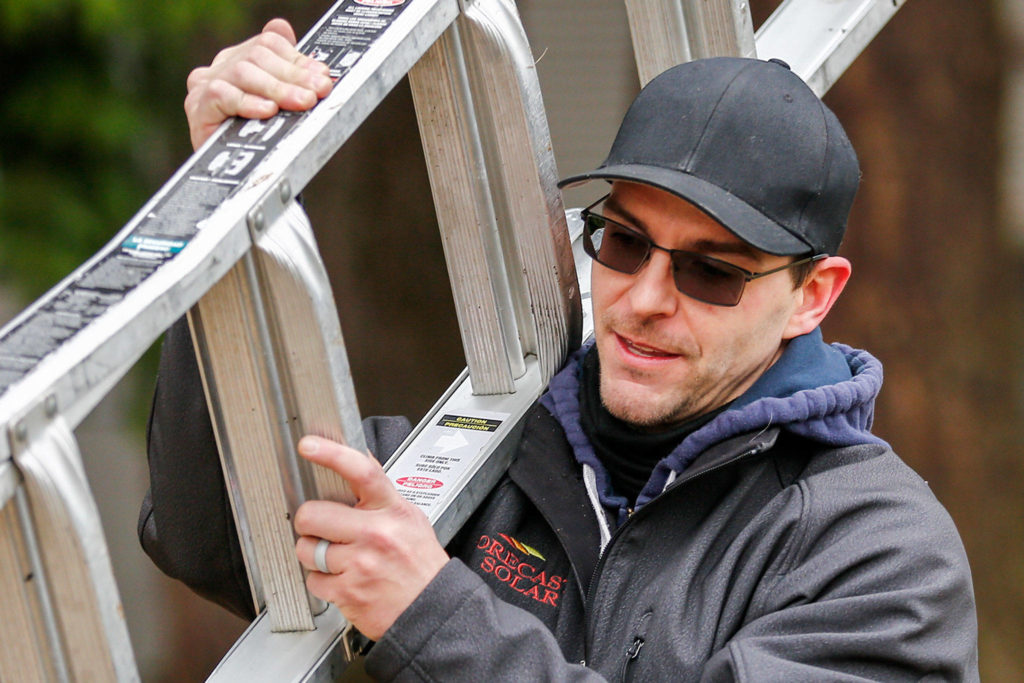EVERETT — A year ago, solar power was one of the fastest-growing renewable energy sources in the United States, second only to wind, according to the International Energy Agency.
But economic fallout from the COVID-19 pandemic has put a dent in the solar panel industry and, more broadly, cast a shadow over the state’s clean energy and clean technology sectors.
The will to develop green energy is still there, but financial uncertainty is prompting homeowners and businesses to put the brakes on solar and other renewable projects.
Pre-pandemic Washington’s clean tech industry enjoyed five consecutive years of job growth. By 2019, it employed more than 85,000 people and was on track to add another 2,000 or so jobs in 2020.
Clean tech — which once referred almost exclusively to renewable energy sources such as wind turbines, solar panels and battery technology — now describes products and services that lower energy use, reduce pollution and cut food and agricultural waste. As a result, clean tech jobs can be found in a range of industries, from manufacturing to construction to electric vehicle sales.
Instead, more than 17,000 jobs were eliminated last year, according to a report by E2 Environmental Entrepreneurs, CleanTech Alliance and others.
Fewer project orders have forced Morgan Zehrung, the owner of Forecast Solar, an Everett company that designs and installs solar energy systems, to cut back on employee hours.
“We’ve been able to maintain, but we haven’t been growing,” said Zehrung, who founded the business in 2005.
Snohomish County’s clean-tech sector lost more than 1,300 jobs in 2020, with employment dropping from 8,052 in 2019 to 6,700 last year.
While other counties, including King, Pierce and Spokane, also recorded substantial employment dips in their clean-tech sectors, Snohomish County’s 17% decline was, percentage-wise, among the highest.
Experts predict that the clean-tech jobs will come back when the pandemic subsides and consumers regain a sense of financial stability, but it could be slow going.
Zehrung hoped that business would pick up toward the end of last year and help make up for the effect of the state lockdown order last spring, which put residential projects on pause for nine weeks.
“Typically in December, you get a rush of people looking to pick up the tax credit,” Zehrung said. That didn’t happen this winter.
There is work, Zehrung said, “but it’s definitely not as robust as it used to be.”
Fallout from the pandemic is worrisome, Zehrung said, but he also fears that the solar industry’s recovery could be stymied by another loss — the demise of the Solar Investment Tax Credit.
The federal tax credit, in place since 2005, allows homeowners to deduct a big chunk of the cost of a solar energy system from their taxes — up to 30% of the cost of the system.
The credit was due to be phased out at the end of this year, but Congress extended the credit when it passed a massive relief package in December. It was 30% until 2019. Now it’s 26%. In 2023, it drops to 22%, and then it ends altogether for homeowners in 2024.
On the other hand, the tax credit for commercial building owners remains, indefinitely, at 10%.
“It seems backwards and unfair to block individuals from the tax credit while giving it to commercial installations,” Zehrung said. “It does not fit the promoted objective that we need more clean energy. I’m hoping the Biden administration will take concrete action to correct this and allow for equal access to renewable technology and incentives.”
Others see a silver lining for the clean-tech industry.
The pandemic has sparked a cascade of technological innovations and refinements “across all industries that will benefit the clean-tech sector,” said Diane Kamionka, who leads TheLab@everett and the Northwest Innovation Resource Center, two business incubators that serve the region.
The center recently sponsored an Amazon innovation contest that distributed $75,000 to inventors in Snohomish and Skagit counties. The winning concepts overwhelmingly focused on energy-saving devices, pollution and waste control, as well as manufacturing and farming techniques that save on energy or reduce fossil fuel use. The resource center has teamed with the Seattle CleanTech Alliance and plans an eight-week, clean tech support program for entrepreneurs, Kamionka said.
The Boeing Co. recently announced that it aims to make commercial airplanes capable and certified to fly on 100% sustainable aviation fuels by 2030.
Paul Roberts, the Everett City Councilman and chairman of the Puget Sound Clean Air Agency board, said that while the pandemic has cast a pall, “the demand for clean energy hasn’t gone away.”
One way to ensure demand is met is by adequately funding the state’s colleges and universities, Roberts said. Degree and certificate programs at Everett Community College, Edmonds College and Washington State University Everett and other institutions help prepare students for clean energy jobs, but budget cuts in Olympia could put the squeeze on those programs, Roberts said. “Higher education and job training are part of this, and I don’t want to see them left out,” he said.
Still, Roberts is cheered by a spate of new energy-efficient companies seeking space in Snohomish County.
magniX, a company developing electric motors to power aircraft, recently moved its headquarters from Redmond to a 40,000-square-foot building near Paine Field. Its sister company, Eviation, which is building a fully-electric commuter airplane that will be powered by three magniX electric motors, has leased space at the Cascade Manufacturing Center in Arlington for an assembly plant.
In Darrington, plans to build a timber innovation center, focused on innovation and conservation, are coming together, Roberts pointed out.
The project received a $2 million state grant in 2019. Project planners are seeking additional grants this year. One environmentally friendly technology the proposed center hopes to capitalize on is demand for cross laminate timber, known as CLT. Harvested from managed forests, the sustainable layered wood product can replace steel and concrete that require high levels of energy to produce.
“I really think there’s a lot of reasons to be optimistic,” Roberts said. “But we have to deal with COVID first — that’s the elephant in the living room. It’s going to be hard to move forward until we deal with it.”
Janice Podsada; jpodsada@heraldnet.com; 425-339-3097; Twitter: JanicePods
Talk to us
> Give us your news tips.
> Send us a letter to the editor.
> More Herald contact information.
